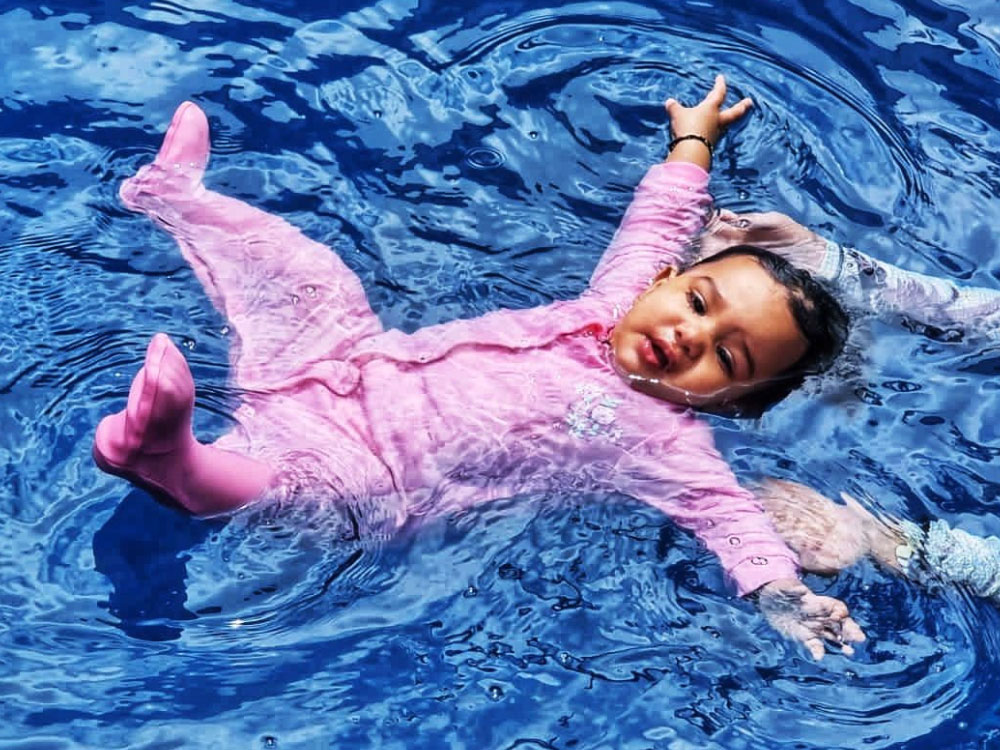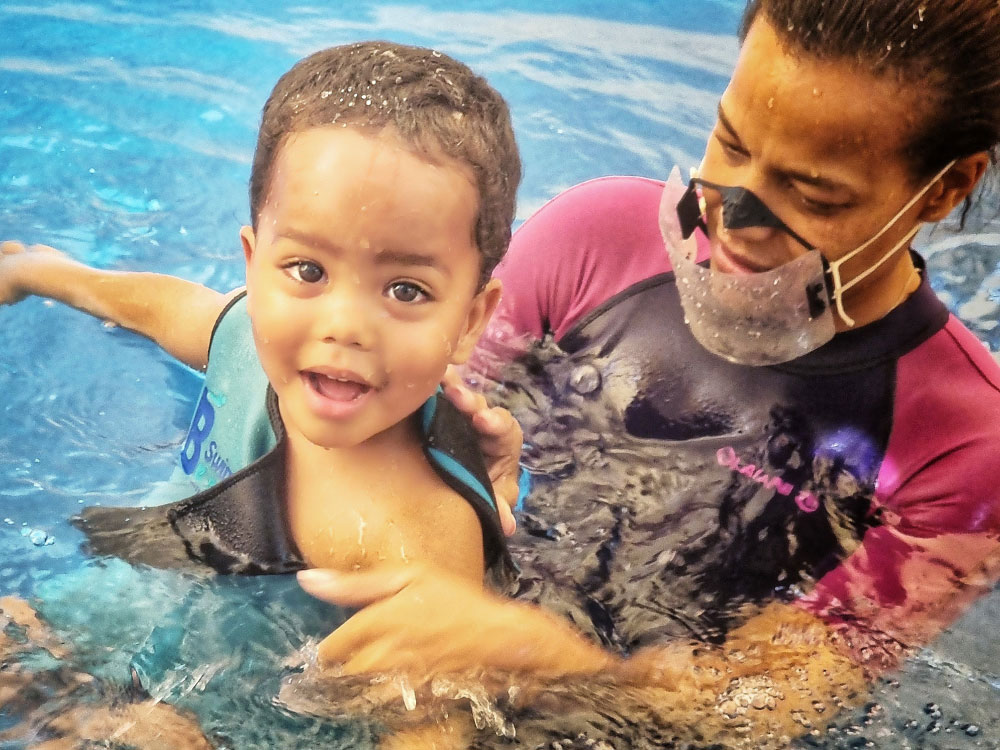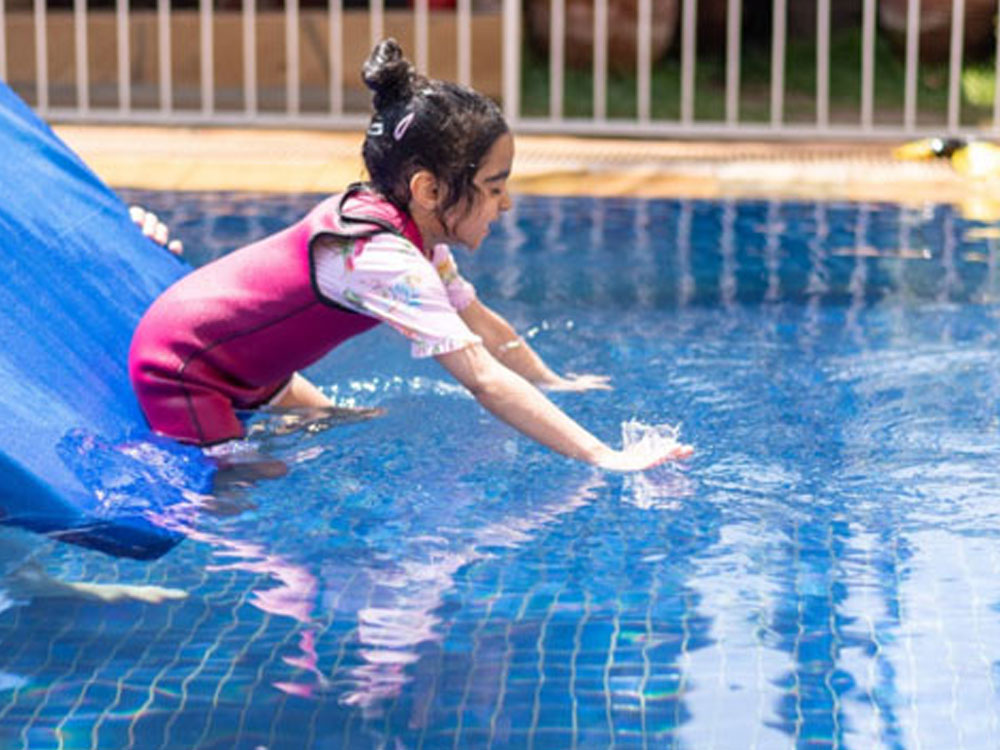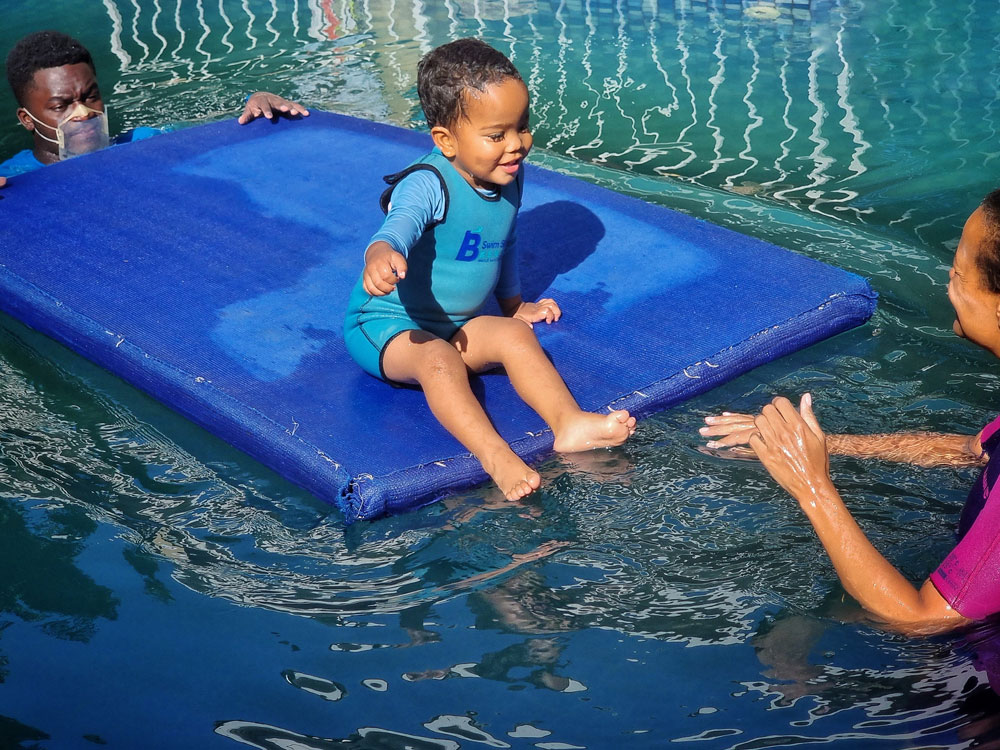Our Courses
We run 6 WaterSafe courses in a year, teaching children from the age of 6 months old.
Group 1: Ages 6 - 12 months
We teach infants how to turnover and float no matter how they land in water. 16 x 10 minute lessons or 160 pool minutes.
Group 2: Ages 1 - 3 years old
We teach toddlers how to kick and float and how to propel themselves easily in the water. 24 x 10 minute lessons or 240 pool minutes.
Group 3: Ages 4 years +
We teach young children the kick-float method and introduce them to stroke work. 12 x 20 minute lessons or 240 pool minutes.
Group 4: Any age
We teach children who have completed the WaterSafe Course about the fundamentals of progressive swimming. 10 minute classes for ages 3 and below. 20 minute classes for ages 4 and above.
Refresher: Any age
This course is for any child that has completed a WaterSafe course but has taken a long break from swimming. Duration is based on a case by case basis.




